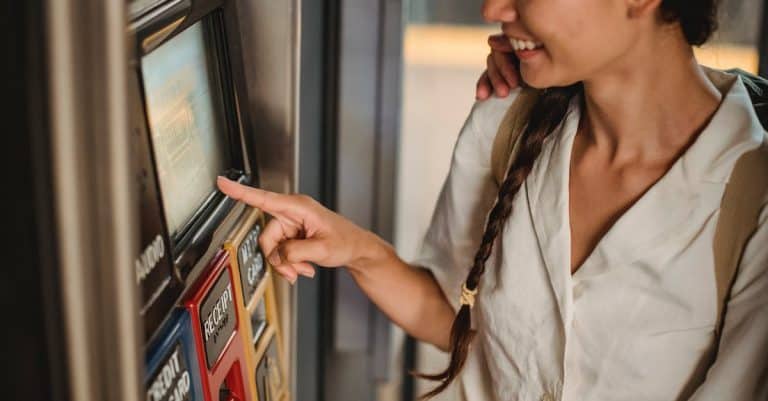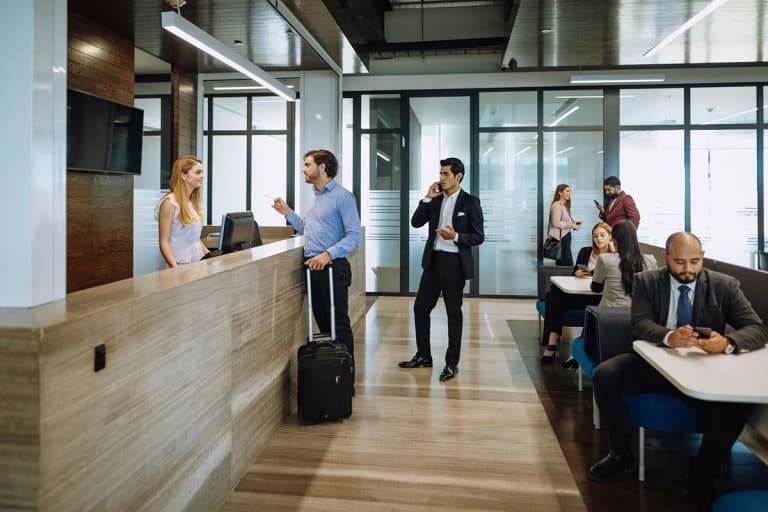Picture this: You’re at the airport, ready to fly home after a long trip, when you hear the dreaded announcement – your flight has been delayed overnight. Suddenly, the question pops into your mind, ‘Do airlines have to pay for hotels?’ If you’re short on time, here’s a quick answer to your question: Yes, in many cases, especially during significant delays or cancellations not due to extraordinary circumstances, airlines may cover the cost of hotel accommodations for passengers.
In this article, we will navigate the world of flight delays, airline responsibilities, and passenger rights. We’ll explore when airlines are obliged to provide hotel accommodations, how the process typically works, and what passengers can do to ensure their rights are respected.
Understanding Airline Responsibilities
Airline Policies on Flight Delays
Flight delays can be an inconvenience for travelers, especially when they disrupt travel plans and result in unexpected expenses. One common concern among passengers is whether airlines are responsible for providing accommodations, such as hotels, in the event of a flight delay. The answer to this question largely depends on the specific policies of each airline.
Many airlines have policies in place that outline their responsibilities in case of flight delays. Some airlines may offer hotel accommodations to passengers if the delay exceeds a certain duration, typically overnight. These policies are often referred to as “delayed flight compensation” or “delayed flight amenities.” However, it’s important to note that not all airlines provide this service, and the specific terms and conditions may vary.
Exceptions to the Rule
While some airlines do offer accommodations for flight delays, there are exceptions to the rule. Certain circumstances, such as weather-related delays or air traffic control issues, may exempt airlines from providing hotel accommodations. These situations are typically considered “force majeure” or “acts of God,” and airlines are not legally obligated to provide accommodations in such cases.
Additionally, it’s important to read the fine print of your airline ticket or consult the airline’s official website for information on their policy regarding flight delays and accommodations. Some airlines may have specific criteria that must be met in order for passengers to be eligible for hotel accommodations, such as the length of the delay or the distance from the passenger’s home airport.
To ensure that you are well-informed about your rights as a passenger, it is recommended to familiarize yourself with the policies of the airline you are flying with. This can help you better understand what to expect in the event of a flight delay and make necessary arrangements ahead of time.
It’s worth noting that there are also third-party travel insurance companies that offer coverage for flight delays and accommodations. These insurance plans can provide additional peace of mind and financial protection in case of unexpected delays.
When Do Airlines Provide Hotel Accommodations?
Determining Factors for Accommodation
Flight delays can be a frustrating experience for travelers, especially when it leads to overnight stays. Many passengers wonder if airlines are responsible for providing hotel accommodations in such situations. The answer to this question depends on various factors.
1. Length of the Delay: Generally, airlines are more likely to provide hotel accommodations if the delay is lengthy, typically exceeding a certain number of hours. This threshold may vary depending on the airline’s policy, but it is usually in the range of 4 to 6 hours.
2. Flight Distance: The distance of the flight also plays a role in determining whether airlines provide hotel accommodations. For long-haul international flights, airlines are more inclined to offer overnight accommodations compared to shorter domestic flights.
3. Airline Policy: Each airline has its own policies regarding hotel accommodations during delays. It is essential to familiarize yourself with your airline’s terms and conditions, which can usually be found on their website or by contacting their customer service.
What if the Delay is Not the Airline’s Fault?
Sometimes, flight delays are caused by factors beyond the airline’s control, such as severe weather conditions, air traffic congestion, or unexpected mechanical issues. In such cases, airlines may not be obligated to provide hotel accommodations.
1. Acts of God: If the delay is due to “acts of God,” airlines may not be liable for hotel accommodations. These include natural disasters, extreme weather events, or other unforeseen circumstances that make flying unsafe or impossible.
2. Extraordinary Circumstances: In certain situations, airlines may claim that the delay is due to extraordinary circumstances, which exempts them from providing hotel accommodations. Examples of extraordinary circumstances can include political unrest, security threats, or strikes by airport staff.
It is important to note that even if the airline is not obligated to provide hotel accommodations, they may still offer assistance or provide options for accommodation at discounted rates. Additionally, some travel insurance policies may cover the costs of hotels during flight delays, so it is worth checking your policy before traveling.
Also Read: Do Airlines Provide Hotels For Layovers? Everything You Need To Know
How Do Airlines Manage Hotel Bookings for Passengers?
The Process of Arranging Accommodations
When flight delays or cancellations occur, airlines are often responsible for providing accommodation to affected passengers. The process of arranging accommodations can vary depending on the airline’s policies and the specific circumstances of the delay.
In most cases, airlines have agreements with certain hotels near the airport to accommodate stranded passengers. These agreements may include negotiated rates, ensuring that the airline can provide accommodations at a reasonable cost. Additionally, airlines often have dedicated staff or third-party service providers who are responsible for making hotel bookings on behalf of passengers.
When a flight delay or cancellation occurs, airline staff will assess the situation and determine if the delay is the airline’s responsibility. If it is, they will then arrange for hotel accommodations for eligible passengers. This typically involves providing passengers with vouchers or other forms of documentation that can be presented at the designated hotel.
Passengers may be required to wait at the airport until the arrangements are made, or they may be transported directly to the hotel via shuttle service. It is important for passengers to follow the instructions provided by airline staff to ensure a smooth process.
Variations in Airline Practices
While the general process of arranging accommodations is similar across airlines, there can be variations in how different airlines handle these situations.
Some airlines may prioritize passengers based on factors such as frequent flyer status or the class of service they were booked in. This means that passengers with higher status or those traveling in premium cabins may receive priority when it comes to hotel accommodations.
Other airlines may have specific policies regarding the length of the delay before they provide accommodations. For example, some airlines may only offer hotel accommodations if the delay exceeds a certain number of hours, while others may provide accommodations regardless of the length of the delay.
It is always a good idea for passengers to familiarize themselves with their airline’s policies regarding accommodations in case of a flight delay or cancellation. This information can usually be found on the airline’s website or by contacting their customer service.
Pro Tip: If you find yourself in need of hotel accommodations due to a flight delay, it can be helpful to have a backup plan. Research nearby hotels and their rates in advance, so that you have an idea of what to expect if you need to make your own arrangements.
For more information on airline policies and passenger rights, you can visit the U.S. Department of Transportation’s Air Consumer Protection website.
Passenger Rights and Airline Obligations
Know Your Rights as a Passenger
As a passenger, it is essential to be aware of your rights when it comes to flight delays and accommodations. While airlines strive to provide smooth and timely travel experiences, unforeseen circumstances such as weather conditions or technical issues may lead to flight delays. In such situations, airlines have certain obligations towards their passengers.
According to the U.S. Department of Transportation, if your flight is delayed for an extended period, typically more than four hours, and the delay is within the airline’s control, they are required to provide certain accommodations. These accommodations may include meals, refreshments, hotel accommodations, transportation to the hotel, and access to communication channels like phone calls or email.
It’s important to note that these obligations may vary depending on the airline, the specific circumstances of the delay, and the governing regulations of the country in which the flight is operating. Familiarize yourself with the regulations and policies of the airline you are flying with to understand your rights as a passenger.
How to Claim Your Rights
If you find yourself in a situation where your flight is delayed, and you believe the airline is not fulfilling its obligations, there are steps you can take to claim your rights. Here’s what you can do:
- Stay informed: Keep yourself updated on the status of your flight by checking the airline’s website or contacting their customer service. This will help you understand the reason for the delay and any accommodations the airline is offering.
- Document everything: Make sure to keep records of your flight details, including the departure time, delay duration, and any communication with the airline’s representatives. This documentation will be useful when filing a complaint or claim.
- Contact the airline: Reach out to the airline’s customer service to express your concerns and inquire about the accommodations they should be providing according to regulations. Be polite but firm in asserting your rights as a passenger.
- File a complaint: If the airline fails to meet its obligations, you can file a complaint with the appropriate regulatory authority. In the United States, you can submit a complaint to the U.S. Department of Transportation. Provide all relevant information and supporting documents to strengthen your case.
- Seek legal assistance: In certain cases, especially if you have faced significant inconvenience or financial losses due to the delay, you may consider consulting with a lawyer specializing in aviation law. They can guide you through the legal process and help you seek appropriate compensation.
Remember, being well-informed about your rights as a passenger and taking proactive steps can increase your chances of receiving the accommodations and compensation you are entitled to. While flight delays can be frustrating, knowing how to assert your rights empowers you to navigate such situations with confidence.
Real-life Scenarios: Dealing with Flight Delays
Navigating through Flight Delays
Flight delays are an unfortunate reality of air travel, and they can be frustrating and stressful for passengers. Whether it’s due to inclement weather, technical issues, or other unforeseen circumstances, flight delays can disrupt travel plans and leave passengers wondering about their rights and options. So, what can you do when faced with a flight delay?
Firstly, it’s important to stay informed. Keep an eye on the flight status updates provided by the airline, either through their website or mobile app. This will help you stay updated on any changes to your flight schedule. In some cases, the airline may provide you with alternative flight options or accommodation if the delay is significant.
If you find yourself stuck at the airport for an extended period, take advantage of the amenities available. Many airports have comfortable seating areas, charging stations, and even entertainment options such as shops, restaurants, and lounges. Utilizing these facilities can help make your wait more comfortable and enjoyable.
Additionally, consider reaching out to the airline’s customer service. They may be able to provide you with further information about the delay and any available accommodations. Remember to remain patient and polite when dealing with customer service representatives, as they are there to assist you in the best way possible.
Tips to Manage Unexpected Hotel Stays
In some cases, flight delays can be significant enough that passengers are required to stay overnight in a hotel. This can be an inconvenience, but there are steps you can take to make the experience more manageable.
Firstly, check with the airline if they provide complimentary hotel accommodations for delayed flights. Some airlines have policies in place that require them to provide accommodation, meals, and transportation for passengers in certain situations. If the delay is within the airline’s control, they may be obligated to provide these services.
If the airline does not offer complimentary accommodations, you may still be able to receive compensation. In some cases, travel insurance policies may cover the cost of unexpected hotel stays due to flight delays. Check your policy details or contact your insurance provider for more information.
Alternatively, you can consider booking a hotel on your own. Many hotels offer discounted rates for stranded passengers, so it’s worth checking with the hotel directly or using online booking platforms to find the best deals. Keep your receipts and any relevant documentation, as you may be able to claim these expenses later on.
Remember, each airline has its own policies regarding flight delays and accommodations, so it’s essential to familiarize yourself with their terms and conditions. By staying informed, being proactive, and exploring your options, you can navigate through flight delays and unexpected hotel stays with greater ease.
Conclusion
Navigating through the realm of flight delays and unexpected overnight stays can be less daunting if you understand your rights and the airlines’ obligations. Yes, airlines often have to pay for hotels during significant delays, but the circumstances can vary based on numerous factors.
Remember, knowledge is power. Understanding your passenger rights and the specific policies of your airline can turn an otherwise frustrating experience into a manageable, if not entirely pleasant, situation. So, the next time you’re faced with a delay, arm yourself with information, exercise patience, and remember that every cloud – or in this case, flight delay – has a silver lining.






